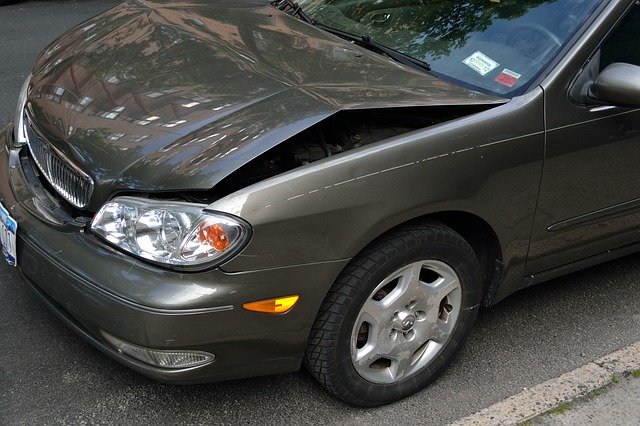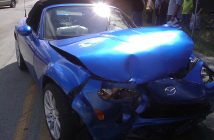
Hitting another person’s car is stressful, and if you’re uninsured it can have some pretty serious consequences. If you find yourself in this unfortunate situation, first know that you’re not alone.
Even though all but two states — Virginia and New Hampshire — legally require drivers to have car insurance, there are around 32 million uninsured drivers in the country. That equates to about 13 percent of drivers having no insurance nationally, varying state to state with rates as low as 4.5 percent in Maine or as high as 26.7 percent in Florida.
Your very first step is to make sure you aren’t insured. This sounds obvious, but many people believe they aren’t covered in situations such as driving a borrowed vehicle, but that simply isn’t true. The owner of the vehicle does likely have insurance that will cover the damage you caused, so if that situation sounds like yours, be sure to double-check.
If you were uninsured, your priorities need to be resolving any legal consequences and finding the means to afford to do so, as without insurance you will be obligated to pay for any consequences of the accident out of pocket.
There are a few things you’ll need to know about your state’s laws to know what exactly happens next.
“No-Fault” States
Twelve states (Florida, Hawaii, Kansas, Kentucky, Massachusetts, Michigan, Minnesota, New Jersey, New York, North Dakota, Pennsylvania, Utah) and Puerto Rico have a “no-fault” system.
What this means is that the insurance company of the injured party compensates that person for their injuries and damages regardless of who is at fault for the accident, but the injured party does not retain the right to sue the other person in the accident except in very specific circumstances. These circumstances can include injuries that have been legally defined as severe or as the cause of excessive medical costs.
There are variations on this system within these states, including the right to refuse the insurance’s offer and pursue a lawsuit in the states of New Jersey, Kentucky, and Pennsylvania. The point of no-fault insurance systems is to mitigate the number of cases being taken to claims courts and reducing the cost of insurance.
If a lawsuit does come to fruition, you will be responsible for any expenses gained through that process. However, if the accident or injuries were relatively minor, the person’s insurance may cover the cost and you may avoid finding yourself a defendant in a lawsuit.
“Tort” States
The rest of the country uses what’s called the “tort” system, meaning if you cause an accident that injures another person, they have the right to sue you for all relevant damages. This can include medical bills, lost wages from missing work, property damage, as well as emotional or physical pain and suffering.
If you are uninsured, you are solely responsible for these expenses (plus your own legal fees!). If your case goes to trial and the other driver receives a judgment from the court, there could be further expenses.
A judgment is a monetary value issued by the court to be owed by the defendant that must be pursued by the plaintiff. Garnishing your wages is one of the methods available to them.
Even if the other driver had uninsured driver coverage and received compensation from their insurance companies, the insurance company may then sue you to recover the money paid out to the other driver. Asset seizure is among the possibilities if the amount you are sued for exceeds the amount you have.
Penalties
Besides the other driver and their insurers, you’ll be facing consequences from the state you live in for breaking the law. The penalties for this offense vary widely from state to state but can include: fines, community service, jail time, impounding your car, points on your license, the suspension of your license and/or registration, confiscation of your plates, and the requirement of SR-22 insurance.
You may incur additional fines through this process, such as a re-registration fee when you get your license back. SR-22 insurance also can be costly. Be sure to research your state’s laws so you can plan ahead.
What Now?
This is all probably very overwhelming, and you may be wondering what you can do to recover from your accident as well as the mounting financial burden associated with it.
One of the first places you should look is your vehicle. Have it assessed by a mechanic, and make a cost-benefit decision about if the damage caused by your accident is worth repairing.
For example, if your car has sustained frame damage, it may not be safe to drive going forward. If the cost of repairs isn’t worth the cost of your car, your best bet is to sell it to a reputable salvage company.
Take some time to get quotes from car recyclers in your area, as you may be surprised what your damaged vehicle can earn you. While the amount you make selling your totaled car may not cover your upcoming expenses, it can be enough to help get you into a newer, safer vehicle or cover your most immediate costs.
With some research and planning, you can successfully navigate this stressful time in your life.
Tags: car insurance


